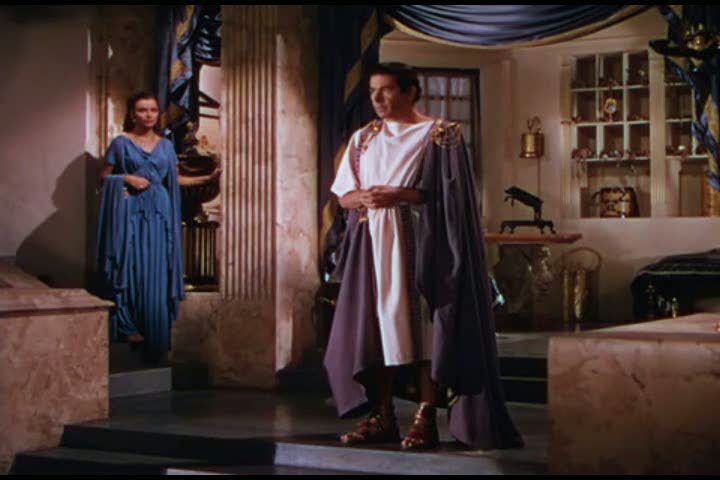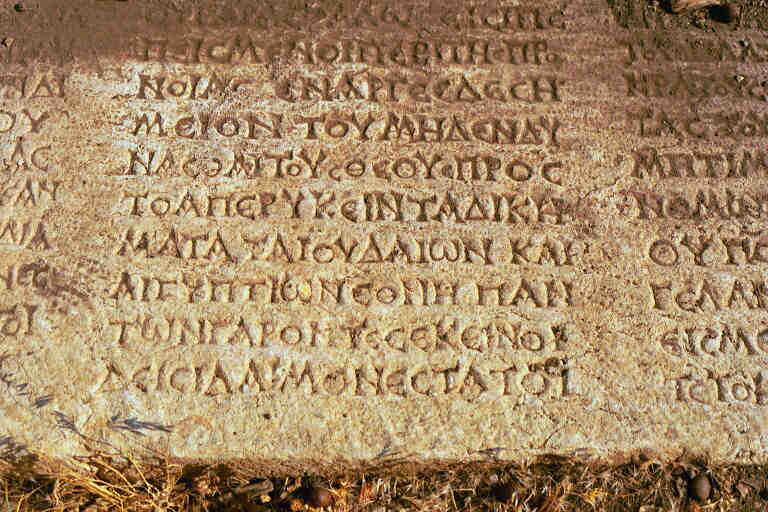The Poet, The Monument-Builder, And Us
Today across the globe many people are exchanging gifts and buying new toys for themselves. Many of those gifts and toys are – to say the least – unnecessary and frivolous. But among the favorite “toys” of our modern world are those which are not toys at all, but devices which open the way to spreading the wisdom of Epicurus in a manner never before possible. Tablet computers of many types are now so cheap as to be almost disposable, and they are being placed in the hands of millions of people who now have access to previously-unimaginable amounts of information.
Will the young people of today, and those older people whose minds are active, use those devices to immerse themselves in a popular culture so corrosive and lame as to be embarrassing even to describe in this sentence? If you provided some child or loved one with a tablet computer today, where would you point them so that they might learn the truth about how to live happy lives?
Epicurus gave specific instructions that we should produce for ourselves summaries and outlines of true philosophy, as these are essential both to our own understanding and to the education of others. It is in this way — through the study of Nature among like-minded friends along the path Epicurus has shown us — that we find the path to live “as gods among men.”
In the ancient world there were no doubt many more, but the two primary examples left to us of those who heeded this advice are Lucretius and Diogenes of Oinoanda. These men heeded Epicurus literally in the epic poem and the monumental wall they produced. How much enjoyment they must have received in producing these, and how many multitudes have profited from their work!
But Epicurus did not say that one had to be a genius or an artist to follow this course, and his instructions are as important to us today as in the ancient world.
Already you can point your browsers and your tablets to outstanding sources of Epicurean wisdom: Epicurus.info — Epicurus.net — The Inscription of Diogenes of Oinoanda, and many more. Some have begun writing their own valuable commentaries, like Mr. St. Andre at Monadnock Press and Mr. Pickering at PhilosophicalGarden. Some have focused on practical principles of living happily, like Mr. Streitferdt at Stress-freedom.net. (Have I missed anyone devoted specifically to Epicurus?) UPDATE 12/26/12: Add Nikos at http://doctrinesofepicurus.com !
I myself have made a small effort to make the core Epicurean texts accessible for free in epub / ebook form. Those efforts can be downloaded free here or on most major ebook stores simply by searching “Cassius Amicus.”
But what has been done so far is woefully insufficient. We need a new generation of writers, video producers, musicians, and artists of all types devoted to taking the core principles of Epicurus to the modern world, and especially to young people. Remember what the Epicurean advocate Torquatus was recorded by Cicero to have said:
The truth is that Epicurus refused to consider any education to be worthy of the name if it did not teach us the means to live happily. Was Epicurus to spend his time, as you encourage Triarius and me to do, perusing the poets, who give us nothing solid and useful, but only childish amusement? Was Epicurus to occupy himself like Plato, with music and geometry, arithmetic and astronomy, which are at best mere tools, and which, if they start from false premises, can never reveal truth or contribute anything to make our lives happier and therefore better?
Was Epicurus to study the limited arts such as these, and neglect the master art, so difficult but correspondingly so fruitful, the art of living? No! It was not Epicurus who was uninformed. The truly uneducated are those who ask us to go on studying until old age the subjects that we ought to be ashamed not to have learned when we were children!
The subjects we ought to be ashamed not to have learned when we were children! The central wisdom of Epicurus is not complicated, it is not lost, and it is as helpful to everyone who will listen as it was in Epicurus’ time.
The third photo that heads this post is that of Petronius from the movie “Quo Vadis.” Petronius is identified as an Epicurean in the text from which the movie was made, and this frame further identifies him with Epicurus by including in the background the famous “leaping pig” recovered from the Epicurean library at Herculaneum.
In this scene, Petronius is wringing his hands in regret that he had not assisted those who wished to depose the tyrant Nero when the opportunity was ripe to do so. “Quo Vadis” is art, not history, but we who honor Epicurus confront a similar question. Will we seize the opportunity that the modern world provides to carry out Epicurus’ instructions? Will we follow the example of Lucretius and Diogenes, who carried out his instructions in their own communities and with their own tools? Or will we live to see dark times descend on us, and regret missing the opportunities that are available to us today?




